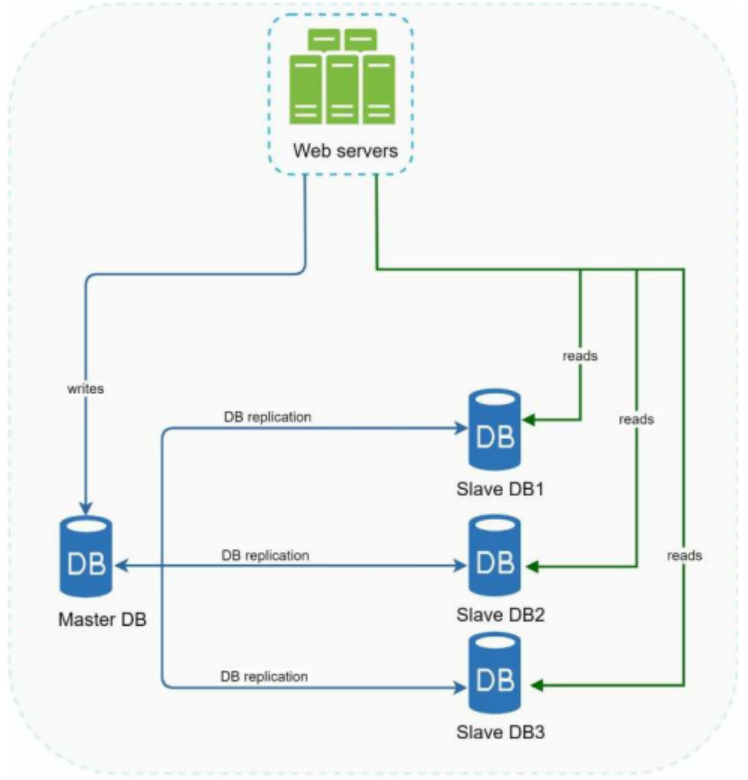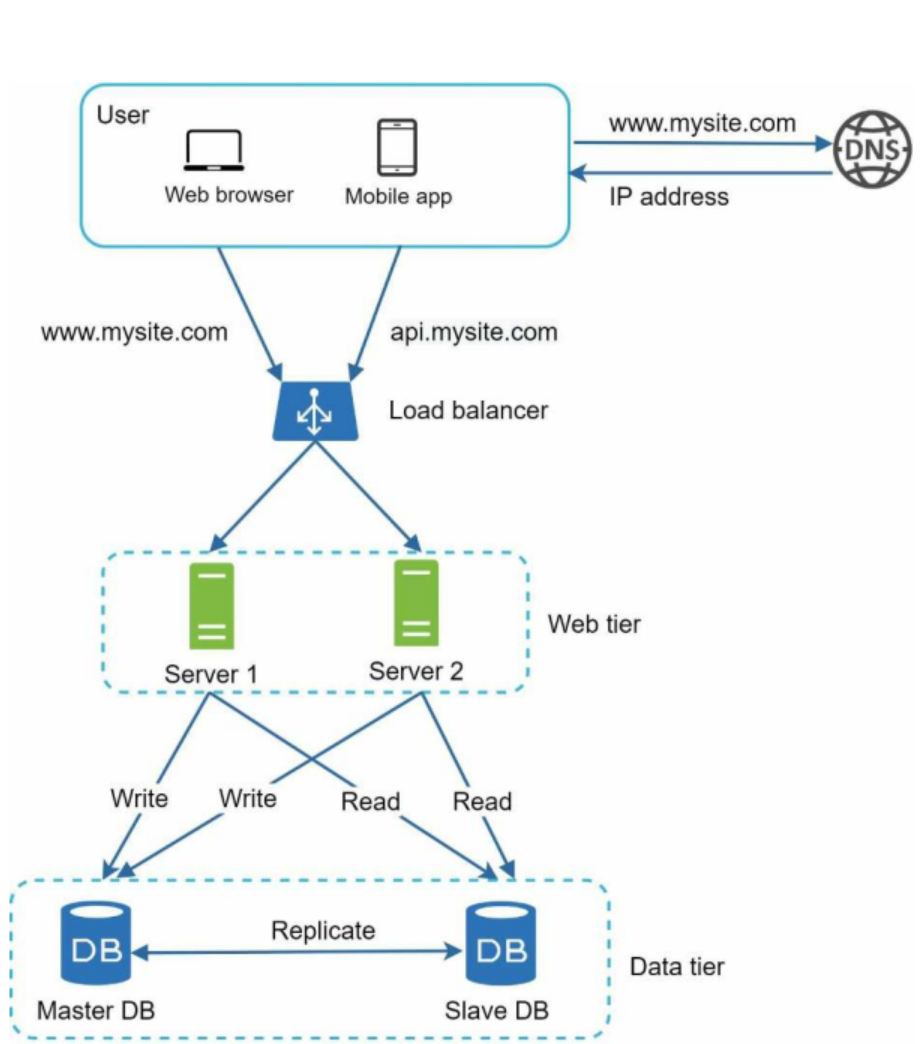Concepts
ACID SQL NOSQL Transaction Consistency
Types
Scaling
Replication
- A master database generally only supports write operations.
- A slave database gets copies of the data from the master database and only supports read operations.
- All the data-modifying commands like insert, delete, or update must be sent to the master database.
- Most applications require a much higher ratio of reads to writes; thus, the number of slave databases in a system is usually larger than the number of master databases.
Benefits
- Better performance
- In the master-slave model, all writes and updates happen in master nodes; whereas, read operations are distributed across slave nodes.
- This model improves performance because it allows more queries to be processed in parallel.
- Reliability
- If one of your database servers is destroyed by a natural disaster, such as a typhoon or an earthquake, data is still preserved.
- High availability
- By replicating data across different locations, your website remains in operation even if a database is offline as you can access data stored in another database server.
Fail-over
- If only one slave database is available and it goes offlin
- Read operations will be directed to the master database temporarily.
- As soon as the issue is found, a new slave database will replace the old one.
- In case multiple slave databases are available, read operations are redirected to other healthy slave databases.
- A new database server will replace the old one.
- If the master database goes offline
- A slave database will be promoted to be the new master.
- All the database operations will be temporarily executed on the new master database.
- A new slave database will replace the old one for data replication immediately.
- In production systems, promoting a new master is more complicated as the data in a slave database might not be up to date.
- The missing data needs to be updated by running data recovery scripts.
- Some other replication methods like multi-masters and circular replication could help, those setups are more complicated

